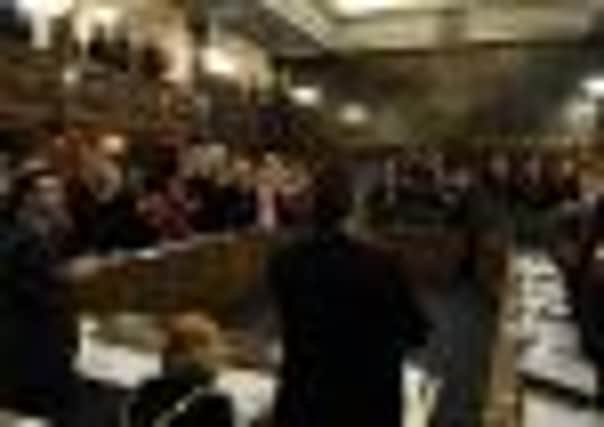Dismay as court outlaws prayers ritual before council meetings outlawed


The National Secular Society and an atheist ex-councillor won a test case ruling that Bideford Town Council in Devon was acting unlawfully by putting prayer on meeting agendas.
It is understood the ritual dates back in Bideford to the days of Queen Elizabeth I.
Advertisement
Hide AdAdvertisement
Hide AdBut Mr Justice Ouseley, sitting in London, ruled local councils lacked power under the Local Government Act 1972 to hold prayers “as part of a formal local authority meeting”.
However it was lawful for prayers to be said “in a local authority chamber before a formal meeting”, provided councillors were not “formally summoned to attend”.
He added: “I do not think that the 1972 Act dealing with the organisation, management and decision-making of local councils should be interpreted as permitting the religious views of one group of councillors, however sincere or large its number, to exclude or, even to a modest extent, impose burdens on or mark out those who do not share their views and do not wish to participate in their expression.”
The Devon council said its last formal prayers on the eve of the judgment. The ritual took the form of “two minutes of reflective silence” conducted by a Quaker.
Advertisement
Hide AdAdvertisement
Hide AdAcknowledging the widespread importance of the decision, the judge gave it permission to appeal.
Communities Secretary Eric Pickles described the judgment as “surprising and disappointing”.
“Christianity plays an important part in the culture, heritage and fabric of our nation,” he said.
“The Localism Act now gives councils a general power of competence – which allows them to undertake any general action that an individual could do unless it is specifically prohibited by law. Logically, this includes prayers before meetings.”
Advertisement
Hide AdAdvertisement
Hide AdSimon Calvert, of the Christian Institute, called on Parliament to “stop this assault upon our national heritage”.
“Prayers have been a part of council meetings for centuries, and many people, either for religious reasons or cultural reasons, see them as a positive part of our national life,” he said. “It’s a shame the courts have taken sides with those whose goal is to undermine our Christian heritage.”
The Bishop of Wakefield, the Rt Rev Stephen Platten, who leads prayers in the House of Lords for three weeks each year, said: “I think it’s regrettable that councils shouldn’t be allowed to start with prayers because to stop it happening is just as much taking a decision on the beliefs of other people as allowing it to happen.
“By stopping prayers principally in a place where a majority of people do have Christian beliefs, it’s discriminating against them. By all accounts the National Secular Society represents a very small minority in our nation and it seems to me odd that a minority should end up prescribing what happens for the majority.”
Advertisement
Hide AdAdvertisement
Hide AdThe judgment was welcomed by the National Secular Society as “an important victory for everyone who wants a secular society that neither advantages nor disadvantages people because of their religion or lack of it”.
Its executive director, Keith Porteous Wood, said: “There is no longer a respectable argument that Britain is a solely Christian nation, or even a religious one. An increasing proportion of people are not practising any religion, and minority faiths are growing in number and influence.”
Liberal councillor Tommy Woodward, who last year failed in a bid to end prayers at Ryedale Council meetings in North Yorkshire, also welcomed the decision and promised to raise the issue again.
“I think it’s fantastic. It’s not about stopping people from practising their religion,” he said.
Advertisement
Hide AdAdvertisement
Hide Ad“If people want to have prayers five minutes before a meeting starts that wouldn’t bother me at all but if they are said straight after it starts that is wrong.”
A spokesman for North Yorkshire County Council, which holds prayers at its quarterly full meetings, said it would examine the judgment.